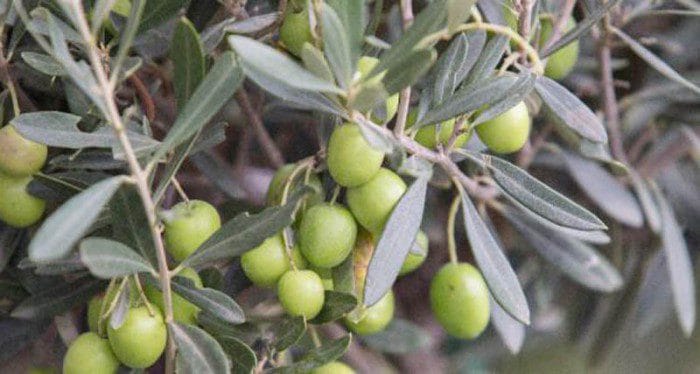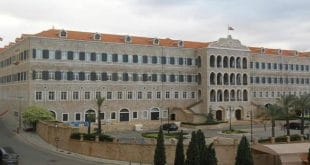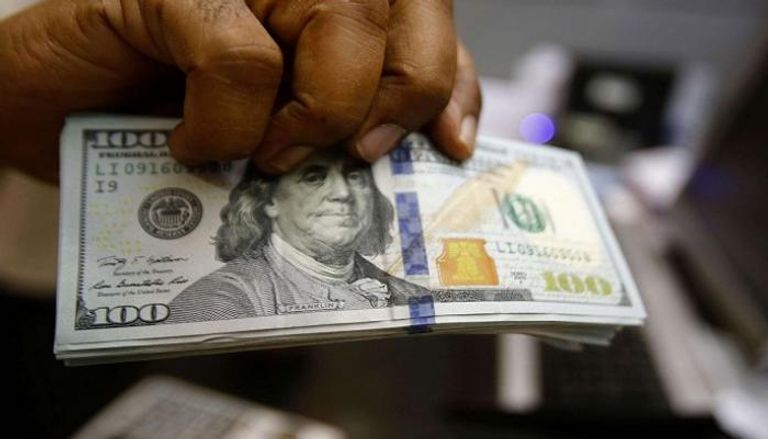إلى جانب الخسائر البشرية والممتلكات، يمثل العدوان الإسرائيلي تهديداً مباشراً لموسم الزيتون الذي يشكّل مصدر رزق لآلاف الأسر. ولا تلوح في الأفق أيّ إمكانية لقطاف الموسم جنوباً الذي ينتج 22% من زيت الزيتون الممتد على مساحة 540 ألف دونم في محافظتَي النبطية والجنوب، علماً أن زيت الزيتون الجنوبي عالي الجودة ويباع بسعر أعلى بنسبة 16% من زيت الشمال، بحسب «المسح السنوي للإنتاج الزراعي في لبنان 2021».منذ نحو 10 أيام، بات يستحيل على مزارعي محافظتَي الجنوب والنبطية الوصول إلى بساتينهم وجني محاصيلهم خلافاً للموسم في العام الماضي، حيث تركّز الإحجام عن القطاف في مناطق محدودة. عفيف حمود، مزارع من بلدة كفرحمام، يصف الوضع المأسوي قائلاً: «البلدة خالية تماماً من سكانها، منذ يومين أجلى الجيش اللبناني آخر مقيمَين، ولا يُسمح بدخول أي سيارة، فيما أحرقت الاعتداءات الإسرائيلية قسماً كبيراً من بساتين الزيتون».
ومع أن موسم القطاف يبدأ عادة في العاشر من تشرين الأول، فإن الظروف الأمنية الحالية تجعل المباشرة بالموسم أمراً مستحيلاً. إبراهيم عصفور، مزارع آخر من قرية أبو قمحة قضاء حاصبيا، يشير أيضاً إلى «استحالة تحريك آليات نقل العمال باتجاه البساتين التي قد تتعرض في أي لحظة لاعتداء»، مع الإشارة الى أن «الأضرار التي لحقت بالمنطقة أقل مما شهدته بلدات مجاورة مثل القليعة وراشيا والماري وغيرها».
إلى جانب المزارعين، يطاول التهديد تشغيل معاصر الزيتون أيضاً، إذ إن معظم مزارعي الزيتون نزحوا عن قراهم، ما جعل المعاصر عاجزة عن فتح أبوابها في معظم المناطق. نبيه دقماق، صاحب معصرة في كفرحمام، يشير إلى أن «الحرائق التي اندلعت في شهرَي نيسان وأيار الماضيين تسبّبت في أضرار كبيرة للبساتين، ولم يتمكن أحد من تقييم الخسائر بعد ولا يمكن توقع حجم ونوعية الموسم إن قُطف». ويوضح أن «السوق اللبنانية تعتمد بشكل أساسي على زيتون منطقتَي العرقوب وحاصبيا اللتين نالتا حصّتهما من الكارثة».
ومع تصاعد وتيرة الاعتداءات، يتوقع دقماق أن «يرتفع سعر تنكة الزيت إلى 200 دولار إذا لم يتم إنقاذ الموسم». وفي راشيا الفخار، يؤكد أسعد الغريب، صاحب معصرة أخرى، أنه جهّز معصرته وقام بصيانة المعدات لاستقبال المحصول، لكنه يخشى أن «ضياع الموسم بسبب الاعتداءات سيترك آثاراً كارثية على الإنتاج والأسعار»، وخصوصاً أن معصرته «تعتمد بشكل كبير على محاصيل القرى المجاورة التي تتعرض لاعتداءات مكثفة مثل كفرحمام وكفرشوبا».
ويوضح المهندس الزراعي حسين حطيط أن «الوضع الأمني الحالي لا يسمح بجني المحاصيل إلا في مناطق محدودة مثل شرقيّ صيدا وجزين، بينما تعجز معظم مناطق الجنوب، مثل أقضية بنت جبيل وحاصبيا ومرجعيون وصور، إضافة إلى قضاء البقاع الغربي، عن بدء الموسم بسبب غياب الإمكانات». ويضيف حطيط أن «هذا التأخير سيؤثّر سلباً على جودة الزيتون، فكلما تأخّر القطاف حتى منتصف تشرين الثاني أو كانون الأول، تساقطت حبّات الزيتون على الأرض»، ما يشكّل ضربة إضافية لهذا القطاع الذي يعتمد على تصدير زيت عالي الجودة.
بمعنى آخر، فإن «جودة الزيت ترتبط بتوقيت القطاف ومعايير زراعية دقيقة». ويشير إلى الأمر عينه رئيس نقابة تجمع مزارعي الجنوب، محمد الحسيني، الذي يرى أنّ «تأخّر القطاف حتى كانون الأول قد يؤدّي إلى تدمير الموسم بالكامل في بعض المناطق، وخصوصاً الأشجار المزروعة في التربة البيضاء التي يبدأ عادة القطاف فيها مبكراً، بينما يبدأ في التربة الحمراء في النصف الثاني من تشرين الأول، وفي كلتا الحالتين فإن مناطق الجنوب ستفقد فرصتها من موسم الزيتون في تشرين الثاني، وسيتعرض غالباً المحصول لتلف كبير.
كما يشكل غياب العمالة تحدياً كبيراً هذا العام، حيث يعتمد قطاع الزيتون بشكل رئيسي على العمالة الأجنبية، ولا سيما من التابعية السورية، التي بات يصعب استقطابها في ظل النزوح المتزايد. ويؤكد الحسيني أن «العدوان لا يفرّق بين المزارعين وغيرهم، ما يجعل القطاف في معظم القرى الجنوبية مستبعداً».
ومع غياب الإنتاج الجنوبي، يتوقع الحسيني أن «ترتفع الأسعار بشكل ملحوظ، حتى مع تراجع الطلب بسبب الأوضاع الاقتصادية الصعبة، حيث يعمد جزء كبير من اللبنانيين إلى تخزين الزيت والزيتون خلال هذا الشهر، لكن الأوضاع المعيشية وظروف السكن لن تسمح لهم بالشراء هذا العام»، ورغم أن محافظتَي الشمال وعكار قد تستطيعان تغطية جزء من النقص، إلا أن الجودة الأقل لزيت الشمال مقارنة بالجنوب تزيد من حجم الفجوة في السوق. وفي المحصلة، فإن «نقص المعروض من الزيتون، حتى في ظل تراجع الطلب، سيؤدي إلى تذبذب الأسعار وارتفاعها».
المصدر: أسماء اسماعيل – الأخبار
Attack Reduces Olive Oil Production by 22%
In addition to human and property losses, the Israeli aggression poses a direct threat to the olive season, a livelihood for thousands of families. There appears to be no possibility of harvesting in the south, which produces 22% of Lebanon's olive oil across 540,000 dunams in the Nabatieh and South Governorates. According to the “Annual Agricultural Production Survey in Lebanon 2021,”
Southern olive oil is of high quality and sells for 16% more than Northern olive oil.
For about ten days, farmers in the southern governorates have been unable to access their orchards, unlike last year when harvesting was possible in limited areas. A farmer from Kfar Hamam, Afif Hamoud, describes the dire situation: “The town is completely empty of its residents. Two days ago, the Lebanese army evacuated the last two residents, and no vehicles are allowed in, while Israeli attacks have burned a large part of the olive groves.”
Typically, the harvest season starts around October 10, but current security conditions render this impossible. Another farmer, Ibrahim Asfour from Abu Qumha, notes the “impossibility of moving transport vehicles to the orchards that could be attacked at any moment,” indicating that “the damage in the area is less than in neighboring towns like Qlayaa, Rashaya, and Mari.”
The threat also extends to olive presses, as most olive farmers have fled their villages, leaving the presses unable to operate. Nabi Daqmaq, an olive press owner in Kfar Hamam, states that “the fires that broke out in April and May caused significant damage to the orchards, and no one has been able to assess the losses yet.” He explains that “the Lebanese market relies heavily on olives from the Arqoub and Hasbaya regions, which have also suffered from the disaster.”
With escalating attacks, Daqmaq expects “the price of a tin of oil to rise to $200 if the season is not salvaged.” In Rashaya al-Fukhara, another press owner, Asaad Al-Ghareeb, confirms he prepared his press for the harvest but fears that “losing the season due to attacks will have catastrophic effects on production and prices,” especially since his press relies heavily on crops from nearby villages experiencing intensive attacks, like Kfar Hamam and Kfar Shuba.
Agricultural engineer Hussein Hitteh clarifies that “the current security situation only allows for harvesting in limited areas like Eastern Sidon and Jezzine, while most southern areas, such as the districts of Bint Jbeil, Hasbaya, Marjeyoun, and Tyre, along with the Western Bekaa, are unable to commence the season due to a lack of resources.” Hitteh adds that “this delay will negatively impact olive quality; the longer harvesting is delayed into mid-November or December, the more olives fall to the ground,” which presents an additional blow to this sector that relies on exporting high-quality oil.
In other words, “oil quality is tied to harvest timing and precise agricultural standards.” This sentiment is echoed by Muhammad Al-Husseini, head of the Southern Farmers' Association, who believes that “delaying the harvest until December could lead to complete destruction of the season in some areas, especially for trees planted in white soil, which are typically harvested earlier, while those in red soil are harvested in the second half of October.” In both cases, southern regions will likely lose their olive season in November, with crops facing significant spoilage.
Additionally, the lack of labor poses a significant challenge this year, as the olive sector heavily depends on foreign labor, particularly from Syrian nationals, whose recruitment has become increasingly difficult amid rising displacement. Al-Husseini emphasizes that “the aggression does not distinguish between farmers and others, making harvesting in most southern villages unlikely.”
With the absence of southern production, Al-Husseini predicts “a noticeable rise in prices, even as demand decreases due to the challenging economic situation, where many Lebanese tend to stockpile oil and olives this month. However, living conditions and housing circumstances will not allow them to purchase this year.” Although the northern and Akkar governorates might cover part of the shortfall, the lower quality of northern oil compared to southern oil further widens the market gap. Ultimately, “the shortage of olive supply, even with decreasing demand, will lead to price fluctuations and increases.”
translated by economyscopes team
 سكوبات عالمية إقتصادية – EconomyScopes إجعل موقعنا خيارك ومصدرك الأنسب للأخبار الإقتصادية المحلية والعربية والعالمية على أنواعها بالإضافة الى نشر مجموعة لا بأس بها من فرص العمل في لبنان والشرق الأوسط والعالم
سكوبات عالمية إقتصادية – EconomyScopes إجعل موقعنا خيارك ومصدرك الأنسب للأخبار الإقتصادية المحلية والعربية والعالمية على أنواعها بالإضافة الى نشر مجموعة لا بأس بها من فرص العمل في لبنان والشرق الأوسط والعالم




